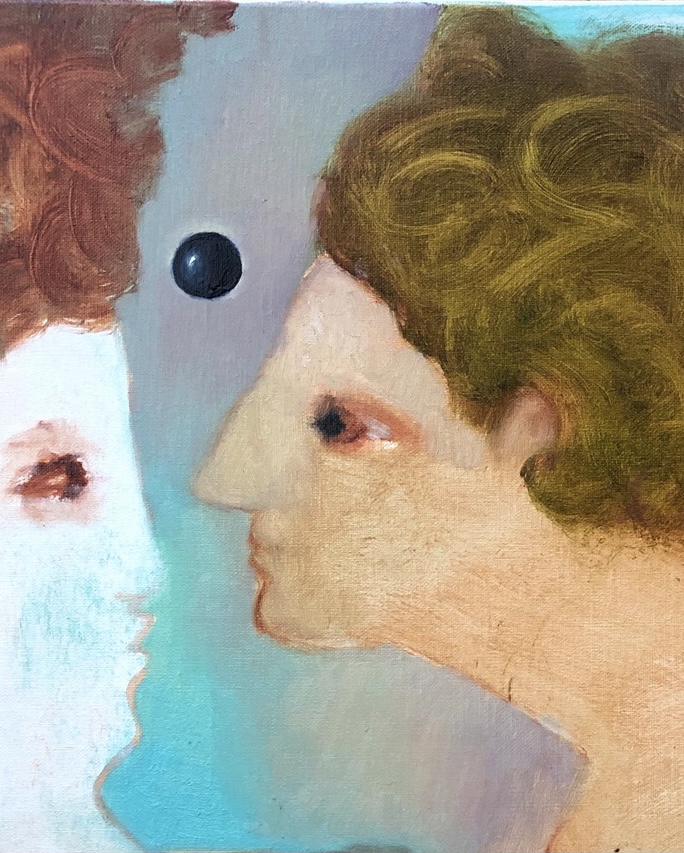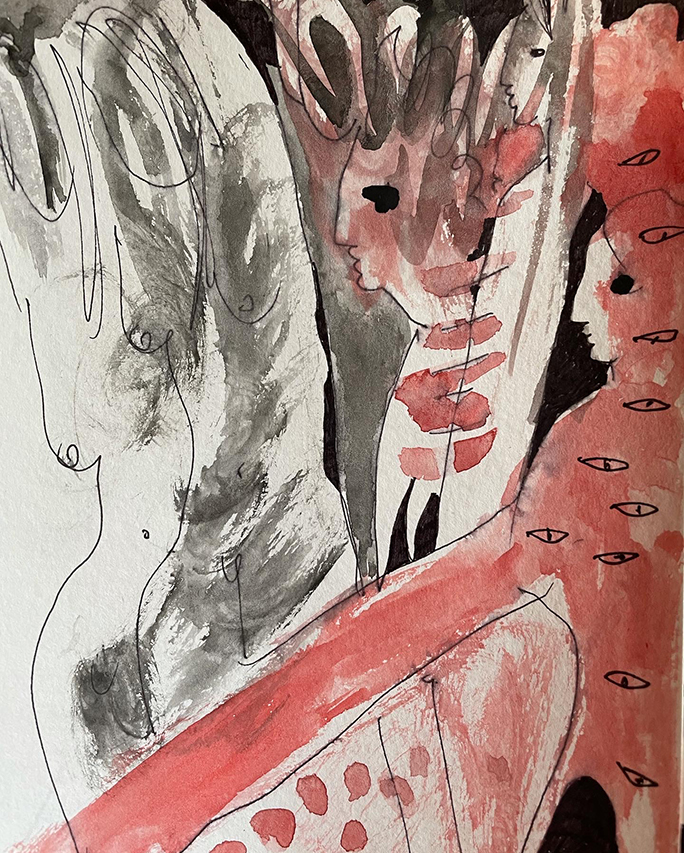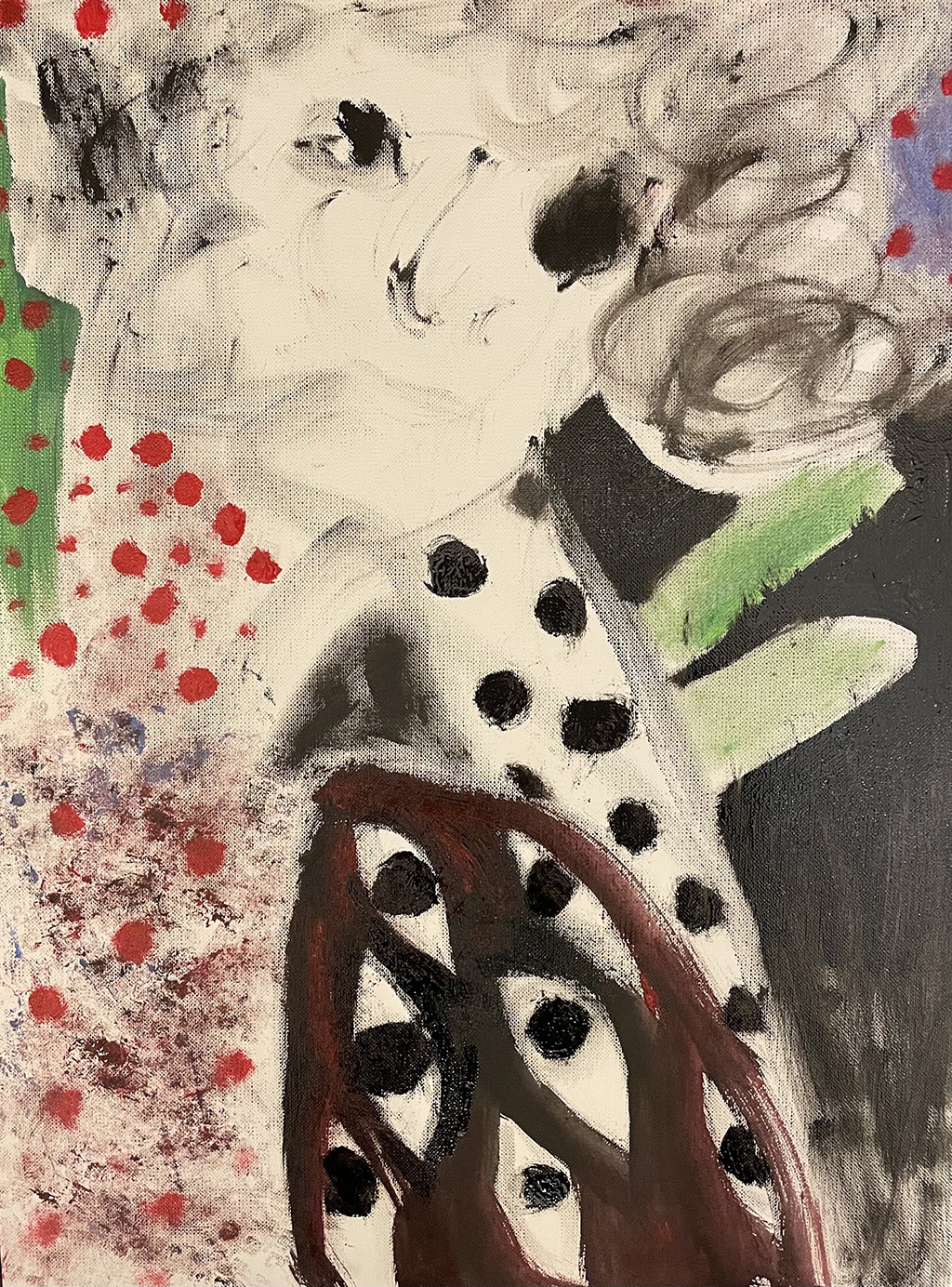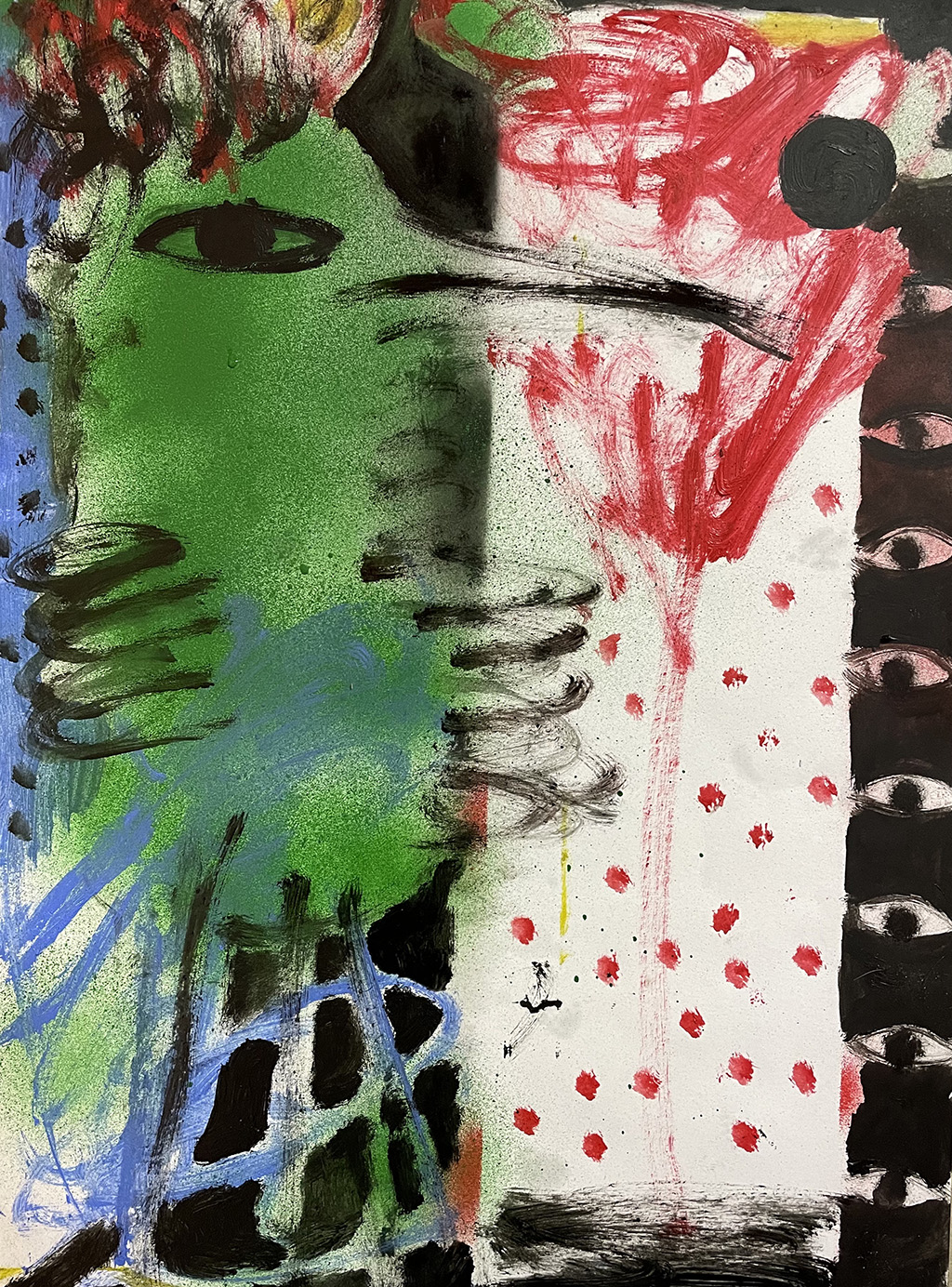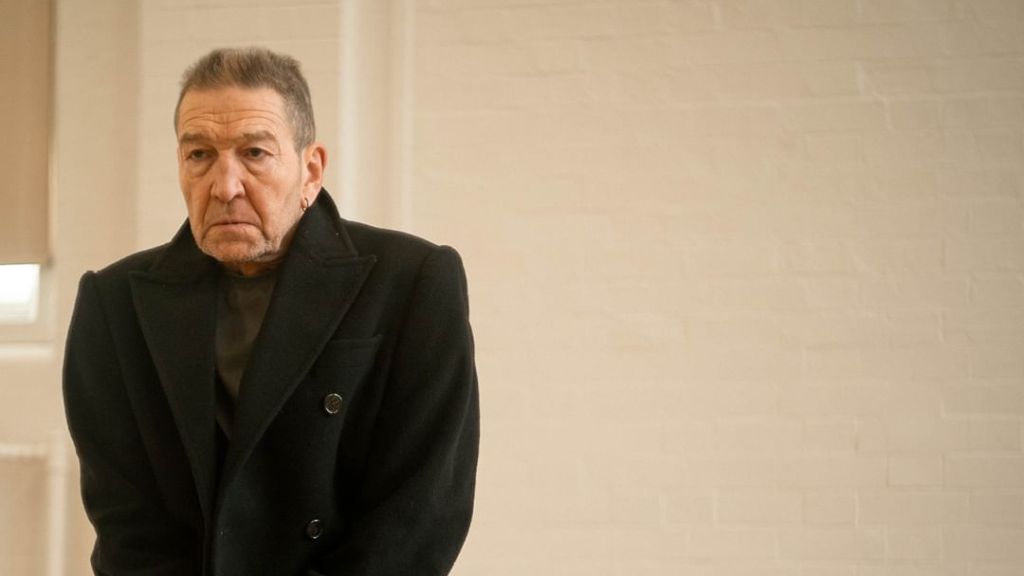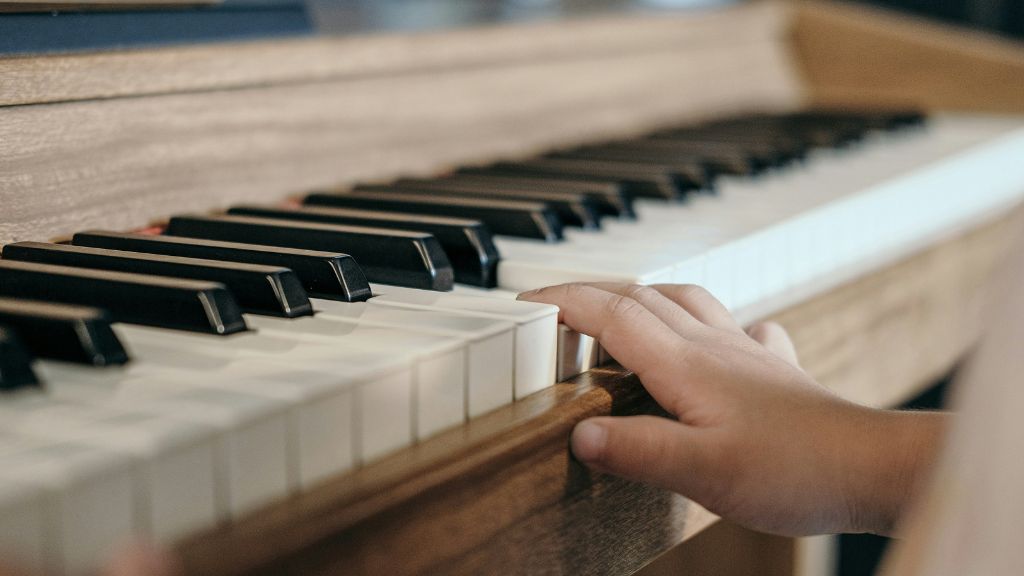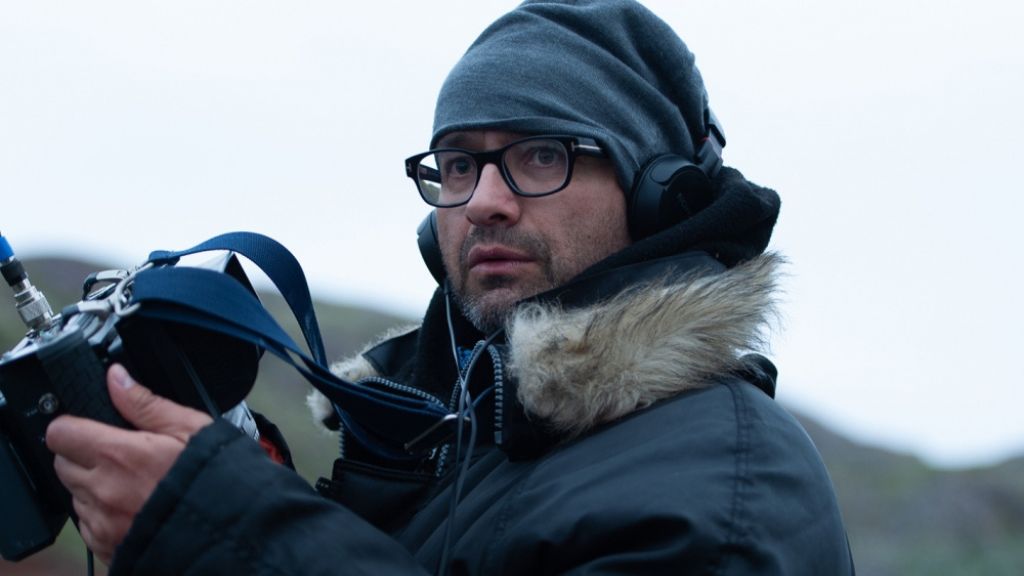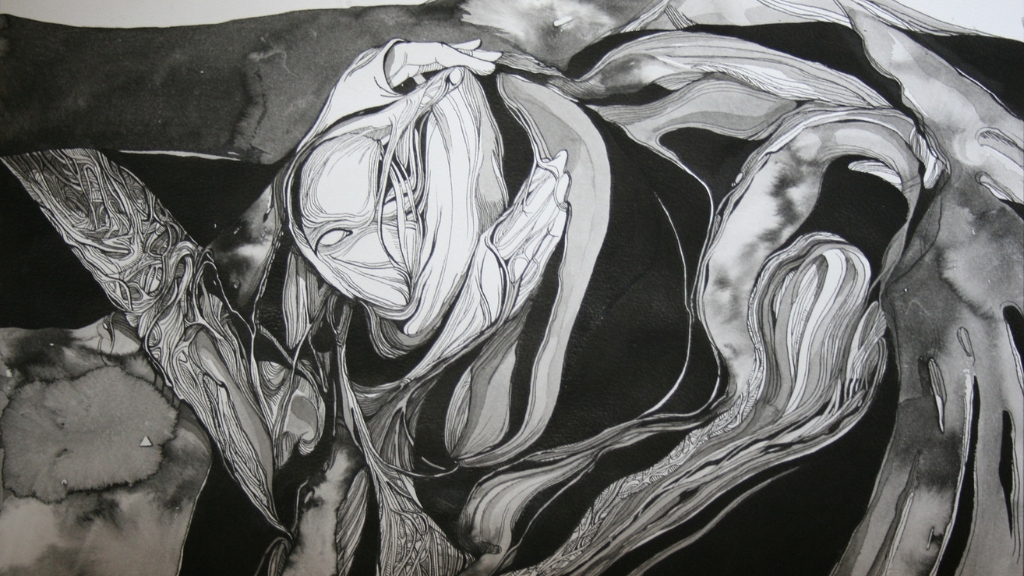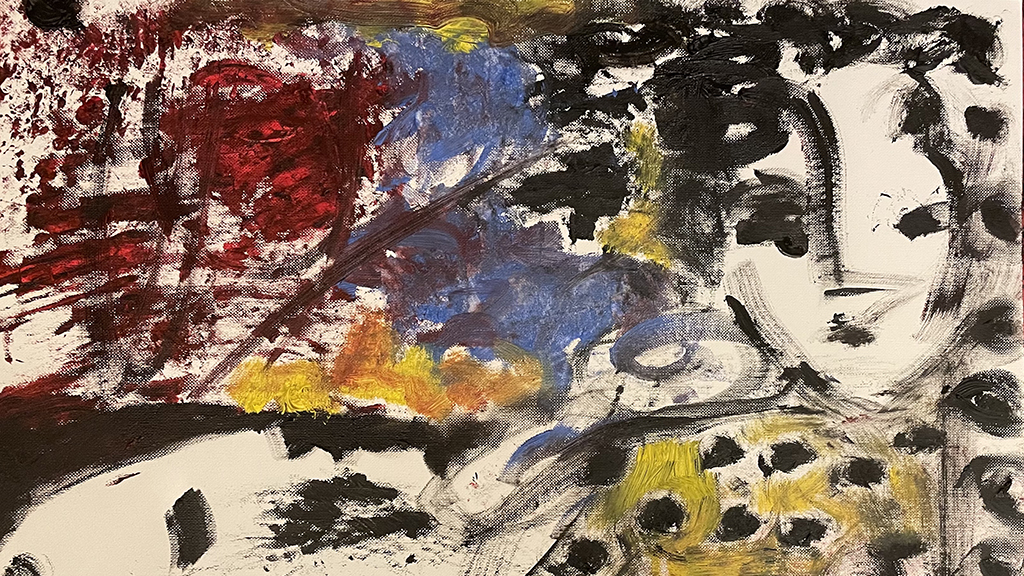
Olga Sorokina: artist inspired by folklore and nature
Afisha.London magazine continues its column in which it talks about talented people who deserve attention: artists, photographers and performers. The hero of this material is Olga Sorokina, a distinctive and original artist from Nizhny Novgorod, whose work reflects folklore and nature.
Olga Sorokina was born in Nizhny Novgorod, on the Volga riverside. Yet she spent much of her childhood on Kerzhenets, another river lost in impenetrable forests and bogs, with steep banks and dark water. The woods, the dark water, the river separating the wild and the settled shore, both images from the artist’s personal history and important motives of Russian folklore, became an inspiration for Olga’s art.
Follow us on Twitter for news about Russian life and culture
Fairy tales, fanciful worlds of imagination and natural processes merge in the artist’s creative works. At first glance these worlds seem vivid and vibrant with life, but as soon as you look closely at them, they cease to give the impression of being a safe place. If one continues to look into them further, one sees that aggressive, disturbing, ambivalent images are coherently woven into the surrounding landscape and are in balanced harmony, just as different manifestations of life are in harmony in a balanced eco-environment.
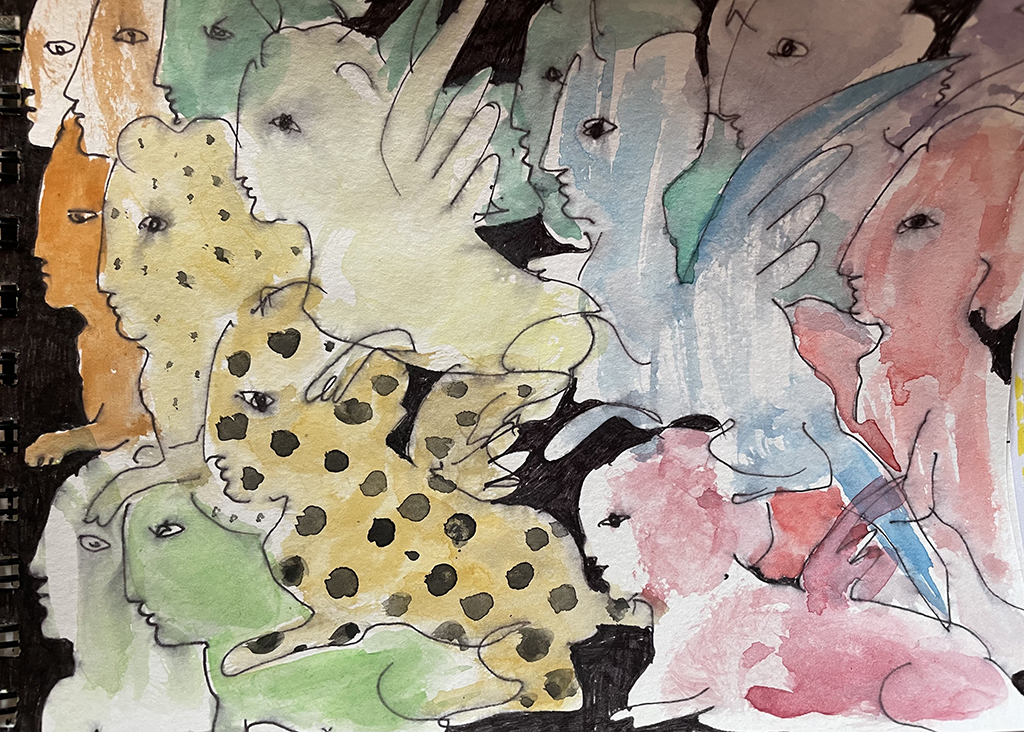
Olga Sorokina, Obsession
Olga Sorokina’s creativity is inspired by the works of two artists from seemingly very different cultures: the Japanese artist Yayoi Kusama and the Ukrainian artist Maria Primachenko. For all their differences, both women are united by the vividness of their works, as well as by the deep connection of their images with nature, on the one hand, and with the inner, almost hallucinogenic reality, on the other.
The same is true of Olga Sorokina’s own works. Bright and paradoxical, they are filled with love for the wild Volga nature and Russian traditional culture. Yet they also address the inner reality of the archaic and phantasmagorical experience.
- Olga Sorokina, Conversation 2
- Olga Sorokina, The Good Spirits
Her creative work embraces natural and folklore motives, almost archaic experience of the surrounding world. The paradoxical language of her works, which is both unusual and recognizable, refers to natural forms, human, animal, floral, and insect-like. However, those forms are of hybrid character — humans with animal bodies, insect-like flowers, bodies flowing one into the other, sometimes naturally, sometimes painfully. A world where of turbulent transformations, where nothing is isolated or constant, as individuality is being lost and regained.
In her work, Olga Sorokina does not avoid the painful, traumatic side of the collective experience of people from the Volga. For example, the series Good Spirits of Vegetation, presented by Olga Sorokina at Gallery 22 (Moscow) and Kunsthalle No. 7 (St. Petersburg) is about the famine that took millions of lives in the Volga region in the 1920s. The series Snegurochka presented at the exhibition No Words (PL photography studio, London) raises the theme of the dead, not buried or buried in mass graves without a name and without the right to be remembered.
- Olga Sorokina, The Good Spirits of Vegetation 1
- Olga Sorokina, The Good Spirits of Vegetation 3
Juliette Sarkisyan, art critic and historian, points out that the common motive of Olga Sorokina’s works, “that emphasizes the relation between familiarity and ambiguity, is the visual correspondence between the human body and the natural landscape”. In the same way we can say that the artist draws attention to the interaction between the external natural landscape and the inner invisible landscape of the soul.
Cover photo: Olga Sorokina The Good Spirits of Vegetation 2
Read more:
Alina Safronova: from the world of pain to the world of art
Artist Irene Makarova: the presence of the Eternal in the Everyday
SUBSCRIBE
Receive our digest once a week with quality Russian events and articles
